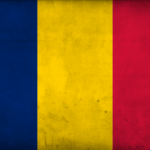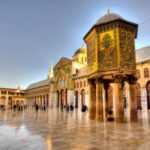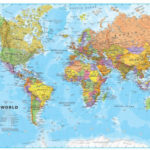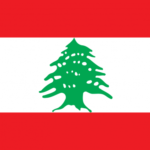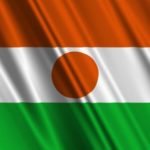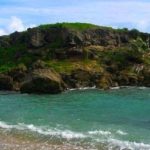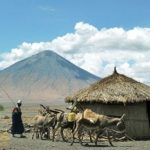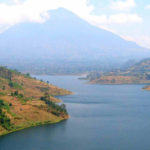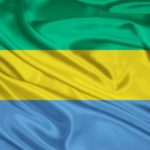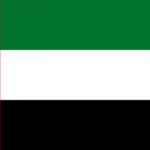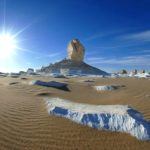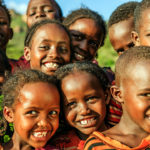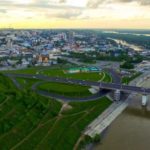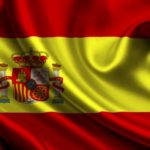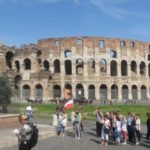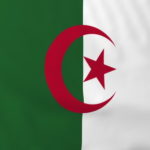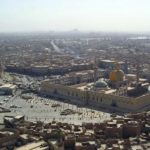Interesting facts about Libya
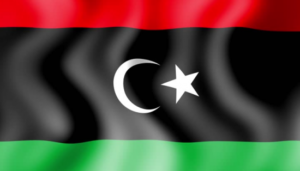 Libya is once a very prosperous country, especially by the standards of Africa. Alas, the 2011 revolution put an end to Libyan prosperity, and despite the fact that many years have passed since then, the state, thrown back in its development half a century ago, still can not recover from the shocks.
Libya is once a very prosperous country, especially by the standards of Africa. Alas, the 2011 revolution put an end to Libyan prosperity, and despite the fact that many years have passed since then, the state, thrown back in its development half a century ago, still can not recover from the shocks.
Libya is almost entirely (90%) covered with desert.
By its size, Libya is the fourth in Africa and the 16th in the world.
The first settlements appeared on the territory of modern Libya for 8 thousand years before our era.
Prior to the civil war in 2011 and the change of the ruling regime in Libya at the national level, Days of the evacuation of American and British military bases, as well as the anniversary of the Egyptian revolution of 1952, were celebrated.
Under the rule of Muammar Gaddafi, the Libyans could receive grants for studies at foreign universities, and students were paid not only for attending classes, but also issued a scholarship of $ 2,300 a month for rent and other expenses.
In the Libyan mountains of Tadrart-Akakus there are unique rock carvings, the oldest of which date back to the 12th millennium BC.
In Libya on the Mediterranean coast are the ruins of the ancient Phoenician city of Leptis Magna, which was called “Rome in Africa” because of its beautiful layout. The city is perfectly preserved, it attracted many tourists and archaeologists from all over the world, but now it is not recommended to visit it because of the complex situation in the state.
Further along the coast is another ancient city – Sabrath. It preserved the Roman theater, the Christian basilica of the time of the Emperor Justinian, the temples of Serapis and Isis.
On the territory of Libya there are also the ruins of Cyrene, one of the greatest ancient cities. The city dedicated to Apollo was founded in 630 BC and finally left by residents in 643 AD. Until now, a significant part of the buildings and a necropolis have been preserved, excavations of which continue to this day.
Libyans do not recognize cutlery and eat with their hands.
Before the revolution, the Libyans at the birth of a child received a one-time payment of $ 7,000 from the state.
In the days of the Jamahiriya (Muammar Gaddafi regime) there were special police units that did not allow the sale of expired products.
Once Libya was at war with the Republic of Chad, the poorest country in the world, but could not win – the conflict ended in a “draw”.
The counterfeiting of medicines in Libya before the civil war was punishable by death.
Residents of Libya until 2011 were exempt from rent and payments for electricity, education, medicine and medicines were also free.
Gasoline in Libya is cheaper than water.
By the time the revolution took place in Libya, the standard of living in the country was one of the highest in Africa.
The name of the Libyan capital Tripoli in the literal translation from Greek means “Three Grades”.
Because of the hot and arid climate in Libya, very few animals and plants.
The overthrown leadership of Libya intended to implement the Great Artificial River project, which would cope with the shortage of water. Water was to flow into Libyan cities from aquifers under the Sahara desert.
Favorite sport of Libyans is football.
In Libya, an unusual way of making coffee is common – roasted coffee beans are rhythmically pounded in a mortar, and the rhythm is of great importance. Ready to drink coffee without sugar, but with spices: it is customary to add saffron, cloves, cardamom and nutmeg to the drink.
In Libya, it is accepted to eat twice a day – eat breakfasts and eat plenty, but at the same time do without dinner. Many Libyan restaurants do not work in the evenings, because they simply do not go.
In the sands of the Sahara on the territory of Libya there is a mountain, which the aborigines call “Crazy”. From a distance it looks very much like a city with palaces, mosques and a colonnade, and near it turns out to be the most ordinary elevation.
In the area of the Ubari Oasis there is an unusual Lake Gabraun, cold on the surface and hot in the depths.
